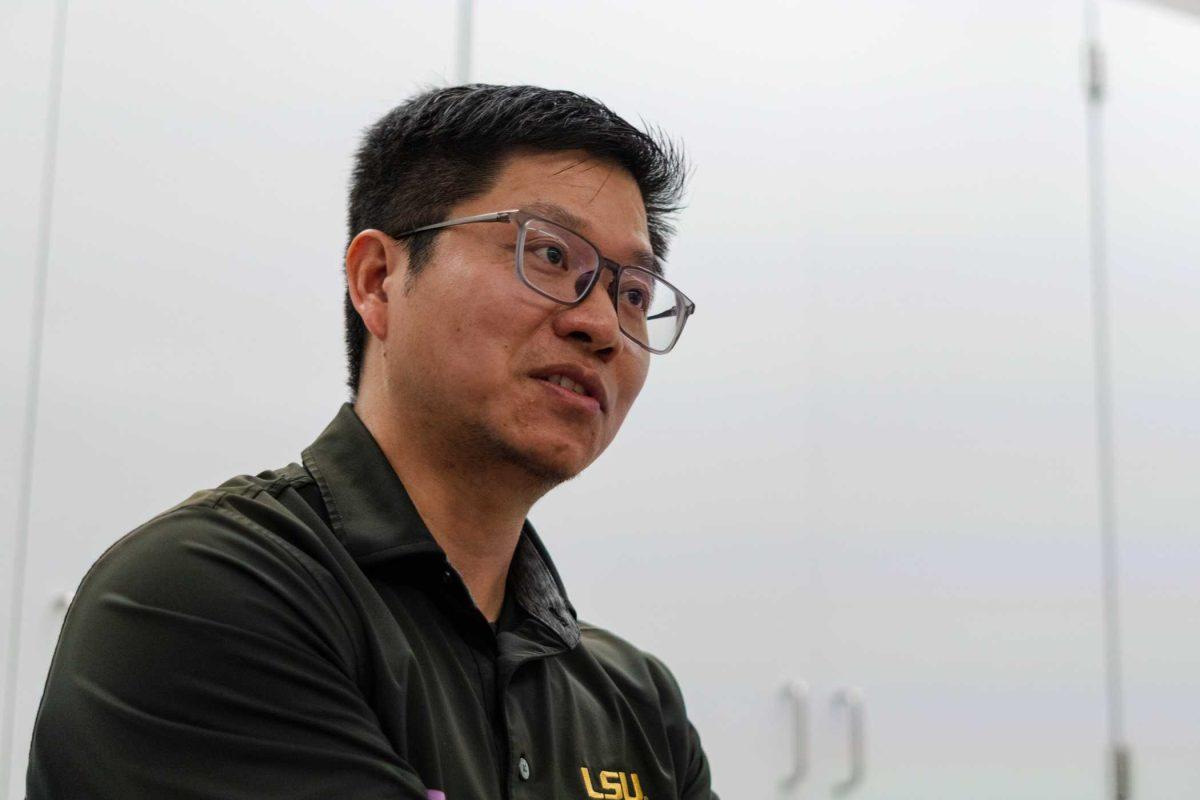Tucked away in a small room in the basement of Huey P. Long Field House, kinesiology professor Senlin Chen and his research team have been working tirelessly for one unifying cause: decreasing childhood obesity in Louisiana.
The state faces a significant challenge with childhood obesity, ranking among the worst in the country. In 2022, Louisiana had the second highest adult obesity rate in the country at 40.1%, with rates varying by ethnicity and socioeconomic status, according to the Centers for Disease Control and Prevention.
READ MORE: Urban gardening with Baton Roots at the Baton Rouge Library
Chen and his team have secured a National Institutes of Health research enhancement grant from the Eunice Kennedy Shriver National Institute of Child Health and Human Development for their project, titled Preventing Obesity Using Digital-assisted Movement and Eating, or ProudMe. This three-year, $450,000 project aims to implement a novel obesity prevention intervention in Louisiana schools.
The ProudMe intervention is a 12-week program targeting sixth, seventh and eighth graders in six Iberville Parish schools. It integrates a new physical and health education curriculum, a cafeteria module and a technology component using artificial intelligence.
Developed by Chen’s lab in collaboration with teachers and educators, the curriculum covers the importance of physical activity, healthy eating habits and reduced screen time. It aims to equip students with the knowledge, skills and motivation needed to maintain a healthy weight and reduce the risk of obesity-related health issues through interactive lessons and activities, setting the foundation for a lifetime of good health.
ProudMe will also seek to consult and train cafeteria staff to ensure healthy food options for children.
During their research, Chen’s team conducted assessments of school cafeterias revealing that none had achieved gold medal status for cafeteria quality. Most of the six Iberville Parish schools scored in the high 20s to low 30s on the 60 point scale, well short of the required 45 points required for a gold medal.
In addition to educational and nutritional support, the ProudMe project integrates AI technology through its website, projectproudme.com. The AI component of the project aims to help students set and achieve personalized health goals. Students can log in and track their fitness goals, receiving personalized feedback from the AI.
READ MORE: The sweet side of Mardi Gras: Which Baton Rouge coffee shop offers the best Mardi Gras menu?
The technology is also being used as an exit ticket in physical education classes, with PE teachers supporting its integration into the curriculum.
This AI-driven approach is designed to engage students in setting specific, measurable, attainable, realistic and timely, or “SMART,” goals related to physical activity, screen time, nutrition and sleep, ultimately promoting healthier behaviors among adolescents.
“We’re trying to integrate this virtual community and real-world experience together,” Chen said.
Chen’s research team has three doctoral candidates and seven undergraduate students working on the ProudMe project. These students play a crucial role in various aspects of the project, from data collection and analysis to implementing intervention strategies in schools.
“It’s really important that we’re starting a healthy generation,” said kinesiology sophomore Jena Bordelon, ”because if you don’t look out for them, who is?”








